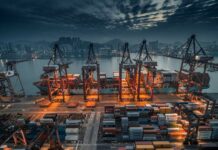It is worth noting that a joint industry statement has gone on to express concern with regards to the Packaging and Packaging Waste Regulation’s references to state-run producer responsibility organizations’ which are feared to make way for legal loopholes and at the same time also threaten the EU’s recycling targets as well as decarbonization objectives.
Executing such provisions into EU legislation may as well undermine progress that has been made in the revisions of the Packaging and Packaging Waste Directive as well as the Water Framework Directive in 2018, the signatories go on to argue. In their point of view, the laws could very well be exploited by Member States so as to avoid meeting their legal obligations, which would go on to lower recycling rates, threaten producers’ capacity to meet minimum needs for their packaging, also jeopardize the packaging sector’s contribution when it comes to the EU-wide goal so as to achieve net zero by 2050, and at the same time threaten the EU’s worldwide EPR leadership.
Apparently, the European Council’s General Approach now goes on to reference state-run producer responsibility organizations in recital 97a, Article 39.7b, along with Article 42.6. The signatories go on to state their unease that these organizations will have no represented producer mandate, as per recital 97a, and fear that such circumstances would decrease a producer responsibility organization- PRO capacity to collect taxes for a state’s treasury as well as help fulfill member states’ reporting obligations.
The fact is that, as such, it is thought that the provisions happen to go against the very reason that the PROs exist, which is to fulfill the producers’ responsibilities on their behalf. The Organisation for Economic Co-operation and Development- OECD goes on to add that state-owned PROs happen to be a form of tax, and since they go on to contradict the minimum needs of Extended Producer Responsibility- EPR schemes as laid out in Article 8a of the WFD1, they cannot be regarded as EPR.
So as to remain on track along with the EU Green Deal and also achieve net zero by 2050, the sector players go on to urge EU legislators in order to remove any references when it comes to state-owned PROs in the Regulation.
The joint letter’s signatories include, but happen to be not limited to, the Alliance for Beverages Cartons & the Environment- ACE, CEFLEX – A Circular Economy for Flexible Packaging, European Bioplastics- EUBP, The Association of European Producers of Steel for Packaging- APEAL, FoodDrinkEurope- FDE, EUROPEN – The European Organisation for Packaging and the Environment, the European Container Glass Federation- FEVE, Natural Mineral Waters Europe- NMWE, the Polyolefin Circular Economy Platform- PCEP and also PET Europe.
It is well to be noted that in December 2023, the European Council went on to reveal its general approach to a proposal when it comes to packaging and packaging waste regulation, as it sought to lower the amount of waste that is generated in the EU, and also harmonize the internal packaging market, and even make progress when it comes to a circular economy.
Apparently, the UNESDA, EUBP, FEVE, the Permanent Materials Alliance, as well as Zero Waste Europe soon responded. Their critical opinions included a dearth of provisions when it comes to specific industries as well as concerns about the addition as well as removal of certain measures from the draft text.
A prior statement from more than 100 players in the European packaging sector went on to encourage the EU Member States so as to preserve the Single Market and also prevent disruptions to the supply chain in the rollout of PPWR.




























